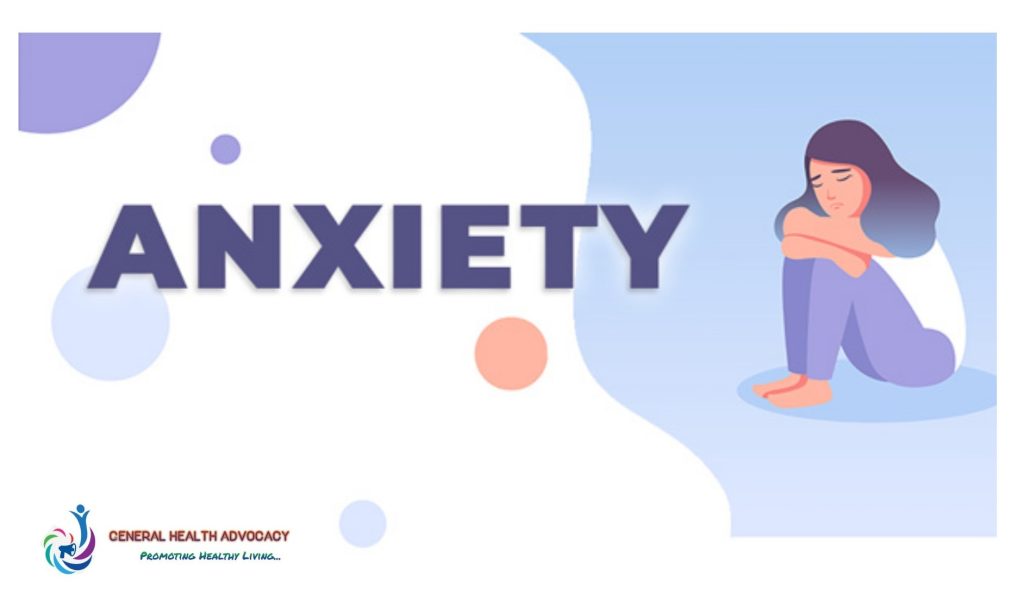Ways to Calm Anxiety and Improve Mental Well-Being

An anxiety disorder is a mental health condition characterized by excessive and persistent worry, fear, or anxiety that interferes with daily functioning. It goes beyond the normal levels of stress or occasional nervousness that most individuals experience.
Anxiety disorders involve a constant and excessive preoccupation with negative thoughts or anticipated events, leading to physical symptoms and emotional distress.
There are several types of anxiety disorders, including:
- Generalized Anxiety Disorder (GAD),
- Panic Disorder,
- Social Anxiety Disorder (SAD),
- Specific Phobias, and
- Separation Anxiety Disorder, among others.
In today’s fast-paced and high-stress world, anxiety has become increasingly prevalent. Anxiety disorders affect millions of people worldwide, causing chronic worry, restlessness, and in severe cases, panic attacks.
Living with anxiety can be overwhelming and take a toll on one’s mental well-being. However, there are several effective ways to calm anxiety and improve overall mental health.
Various Techniques to calm anxiety, and it benefits on mental health.
Some of these techniques will be explore and discuss their benefits.
- Deep Breathing Exercises:
Deep breathing is a simple yet powerful technique to calm anxiety. When we are anxious, our breathing becomes shallow, which can further exacerbate our feelings of distress. By taking slow, deep breaths, we activate the body’s relaxation response, which helps reduce anxiety. Deep breathing exercises oxygenate the brain, improve focus, and promote a sense of calmness and relaxation. - Mindfulness Meditation:
Mindfulness meditation involves paying attention to the present moment without judgment. It helps to shift our focus away from anxious thoughts and worries. Regular practice of mindfulness meditation trains the mind to be in the present moment and increases awareness of our thoughts and emotions. This increased self-awareness allows us to observe our anxiety without getting entangled in it, ultimately reducing its power over us. - Physical Exercise:
Engaging in regular physical exercise is not only beneficial for our physical health but also for our mental well-being. Exercise releases endorphins, which are natural mood lifters, and helps reduce symptoms of anxiety and depression. Additionally, physical activity helps to distract the mind from anxious thoughts and promotes a sense of accomplishment and self-confidence. Whether it’s a brisk walk, jogging, yoga, or dancing, finding an exercise routine that you enjoy can greatly help in calming anxiety and improving overall mental health.
Read Also
- Proper Sleep Hygiene:
Adequate and quality sleep is crucial for maintaining good mental health and managing anxiety. Lack of sleep can exacerbate anxiety symptoms, increase irritability, and make it harder to concentrate. Establishing a regular sleep routine, creating a relaxing sleep environment, and avoiding stimulants like caffeine before bedtime can help promote better sleep. Additionally, practicing relaxation techniques, such as taking a warm bath, reading, or listening to calming music before sleep, can ease anxiety and induce a restful state. - Healthy Diet:
Eating a nutritious and balanced diet can have a significant impact on our mental health. Certain foods, such as those rich in omega-3 fatty acids, magnesium, and B vitamins, have been found to have beneficial effects on anxiety and overall mental well-being.
Omega-3 fatty acids, commonly found in fatty fish like salmon and mackerel, have been shown to reduce inflammation in the brain and promote the production of neurotransmitters that regulate mood. Magnesium, which can be found in leafy greens, nuts, and seeds, helps relax the body and reduce anxiety symptoms. B vitamins, such as folate and vitamin B12, play a crucial role in brain health and can help improve mood and reduce anxiety.
On the other hand, it’s important to limit or avoid certain foods that can exacerbate anxiety symptoms. These include caffeine, alcohol, sugary foods, and processed snacks.
- Caffeine is a stimulant that can increase heart rate and induce feelings of restlessness and anxiety.
- Alcohol, although initially perceived as a relaxant, can disrupt sleep patterns and lead to increased anxiety the next day.
- Sugar and processed foods can cause blood sugar spikes and crashes, leading to mood swings and increased feelings of anxiety.
- Social Support:
Having a strong support system and maintaining social connections is vital for mental well-being. Talking to trusted friends or family members about your feelings can provide comfort, validation, and perspective.
Joining support groups or seeking therapy can also be beneficial for those with anxiety. Connecting with others who have similar experiences can provide a sense of belonging and understanding. Social support can help alleviate feelings of isolation and provide a safe space to share anxieties and fears.

In conclusion, there are several effective ways to calm anxiety and improve mental well-being. Deep breathing exercises, mindfulness meditation, physical exercise, proper sleep hygiene, maintaining a healthy diet, and seeking social support are all beneficial strategies.
These techniques not only help to reduce anxiety symptoms but also promote overall mental health by increasing self-awareness, releasing feel-good hormones, improving sleep patterns, providing essential nutrients, and fostering social connections.
It’s important to remember that managing anxiety is a journey, and what works for one person may not work for another. It’s essential to experiment with different techniques and find what resonates with you personally. If anxiety symptoms persist or become overwhelming, it is always recommended to seek professional help from a mental health practitioner.
Remember, you’re not alone in your journey to calm anxiety, and taking proactive steps towards your mental well-being is an act of self-care and self-compassion. You deserve to live a life free from the grips of anxiety and to experience a sense of inner calm and peace.
One Comment